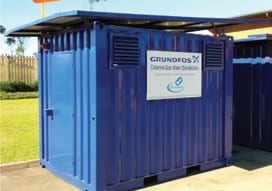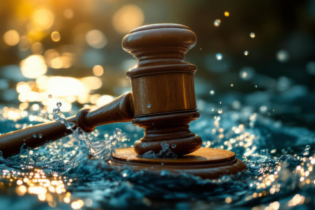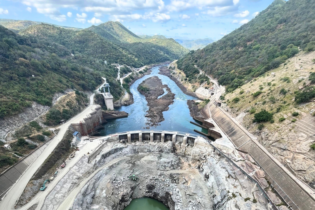What defines the quality of water?
Quality of water is defined by the chemical, physical and biological contaminants present that will influence the suitability of water for a specific end use. More specific to this broader quality statement, it means that quality for potable or drinking water is in essence different to that of water being used for industrial purposes.
This is a very difficult question to answer and the first thing that jumps to mind here is that we don’t know. Not enough is done to actively measure water quality across the entire spectrum i.e. from industrial waste streams, to municipal sewage plants, to streams and rivers adjacent to informal settlements. With that being said, if you can’t measure it effectively you cannot manage it effectively. Major risks to the industry are the lack of water quality data and monitoring. How can your company assist in offsetting these risks?
One of our key products is Gaseous Chlorine, which plays a vital part in managing and controlling the chemical and biological contaminants in drinking water as well as controlling biological contaminants in waste streams. A lot of R&D time and money has been spent over the past year to come up with effective ways to ensure continuous monitoring and dosing and this has led to the company back integrating into the control and dosing equipment markets. We are also engaging with future strategic partners across the globe in order to bring some of the monitoring equipment inhouse while at the same time exploring technology such as telemetry. To prove this point, we have developed a system in conjunction with partners such as Alldos to ensure that we measure water quality, apply the correct dosage and most importantly apply it on a 24/7 basis. These units have been made available to the municipal industry already with some good results. What are the challenges when dealing with water quality issues in South Africa?
The main challenge is “ownership”. Accountability needs to be moved down the line to all stake holders and they should adopt full ownership of measuring and controlling water quality. How do population growth, urbanisation and industrial production affect water quality?
Immensely – all of the factors mentioned will have an effect on water quality and if any of these do not play a vital role in managing water quality, it will have an adverse effect. Proper planning and a controlled expansion are needed.
Does climate change have an effect on water quality?
It will have an influence on the complexity of the water environment and therefore will have an effect. Catchment-level management will be affected.
All relevant stakeholders will need to play their individuals roles and the effective management of water quality is key to the sustainability. What is the way forward to ensure a sustainable and quality water resource?
Government departments, water boards and local authorities needs to implement proper water-resource management. Although there are very well defined plans and strategies in place the key is the actual implementation of these strategies. Successful implementation and enforcement will result in sustainable and a quality water resource. Please give a technical perspective on your company and how it deals with water quality issues
NCP is the manufacturer of key water treatment products such as chlorine, flocculants and various other products. Since the introduction of the Blue Drop/Green Drop certification, there has been a lot of focus on ensuring water quality at relevant treatment works whether they are potable or waste water plants. With our trained sales-force and extensive laboratories we can advise users on how to main – tain proper standards whilst having the infrastructure to add value such as dosing and control equipment. Having been closely associated with the water industry for over 50 years we can play a pivotal role in achieving proper water quality.







